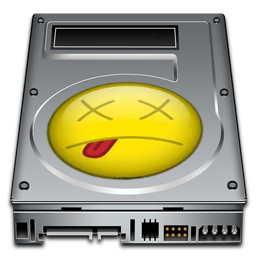
With so much of our lives residing in the digital realm, you’d think everyone would have a data back up plan. The average person’s computer hard drive often contains priceless photo and video memories and financial data. Then there is the fun stuff like music and movies that would be a pain to re-collect.
It could all disappear when your hard drive makes a weird groan and dies unexpectedly (unfortunately they don’t warn you!). Bad things happen to Solid State Drives as well. Then there is theft, fire or accidental deletion. Are you starting to panic? Well don’t – just have a backup strategy. There are many easy strategies to give you piece of mind; including basic cloud services and manual backup.
One of the easiest back up methods is using consumer cloud services like Google Drive or Dropbox. When you install a cloud service, it creates a folder on your computer and mirrors (copies over the Internet to a server computer) anything you put in the folder. As mentioned before, these cloud services usually offer free storage, and they have reasonable rates for more storage room. That said, if you have lots of data like home movies it would get pretty expensive to get enough storage for everything. Cloud storage services allow sharing files to friends and mobile apps to view files from your smartphones and tablets. For US based cloud services, the files are stored in the US and therefore subject to US laws, so the US government could look at your data. That said, it doesn’t look like Canada is better at honouring people’s privacy, and CSIS is quiet on what they’re doing in general. If your files are boring and you don’t care, you can test drive the services for free to see which you like best.
If you prefer to know where your data is stored or are just not into these new fangled cloud services, then perhaps copying your data to a hard drive will do. Two TB (terabyte) hard drives can be had for around $100 these days. That should be sufficient for most people (unless you have a really large video collection.) If you have a Mac, the built in Time Machine backup software is a good option as it also allows you to restore to a particular backup date. PC backup software is also available, but you can also copy your files manually. Ideally you should store your backup hard drive somewhere secure out of your home – like a friend’s place or your office. You can use encryption software like TrueCrypt if you want to secure your data.
You can run a combination strategy with larger data files like videos being backed up on hard drive and your day-to-day data using cloud backup. Most of the cloud storage services have generous if not unlimited photo backup, so you can decide where you want to back up those files. Regardless of the plan you choose, ensure that you stick to the plan and backup regularly. Then if a data loss tragedy hits, you can weather it as an inconvenience rather suffer the blow of losing everything. Then you can tell everyone how smart you were for having everything backed up!
